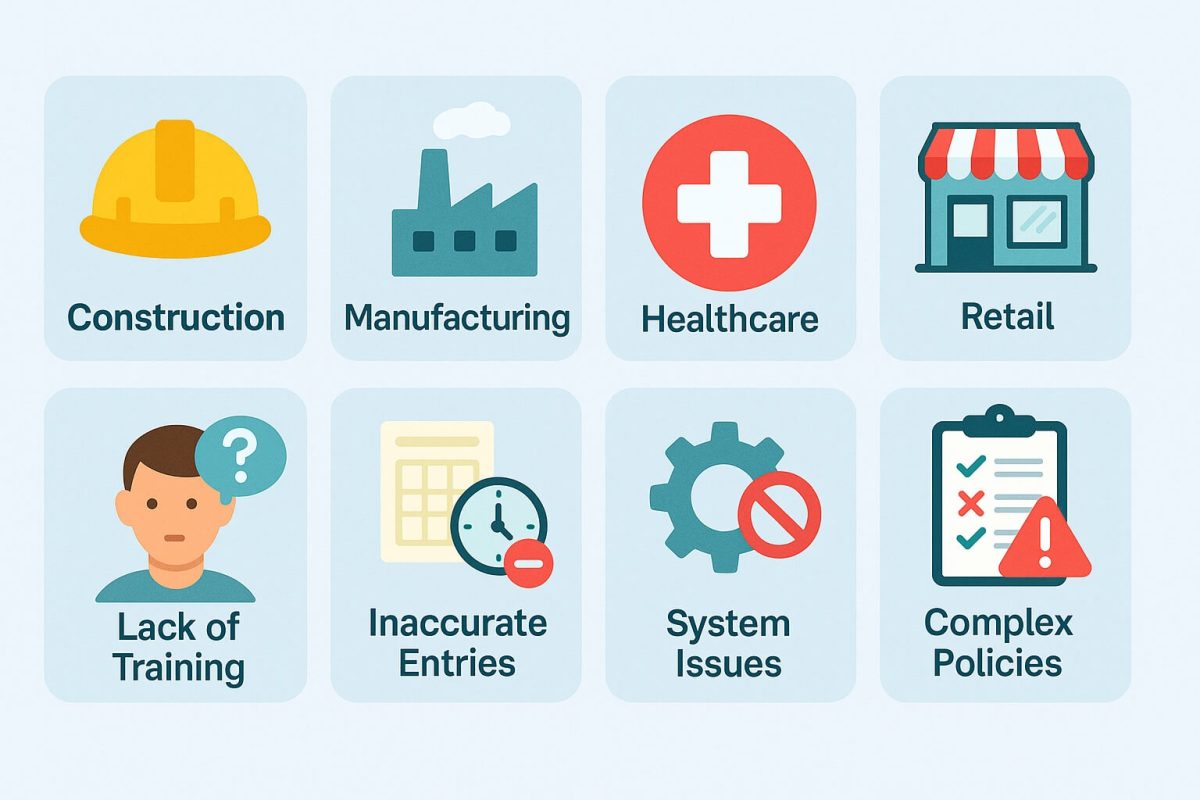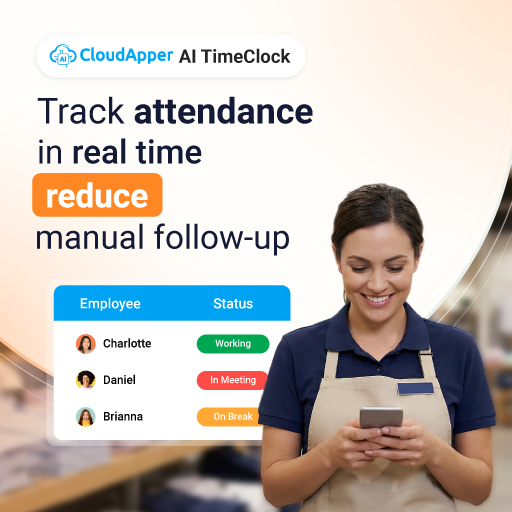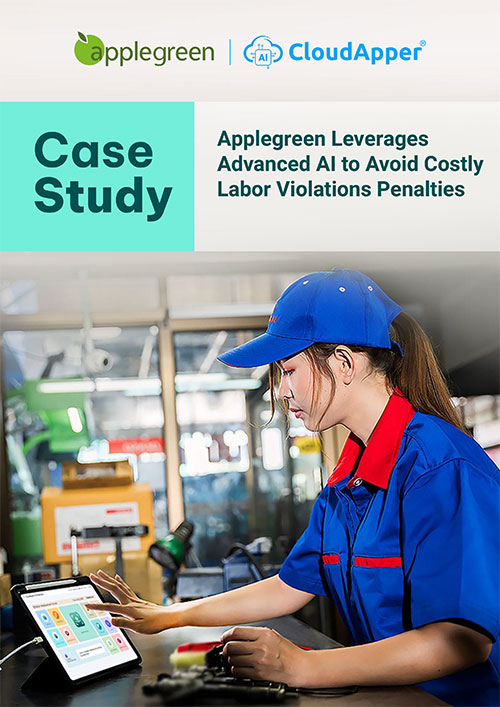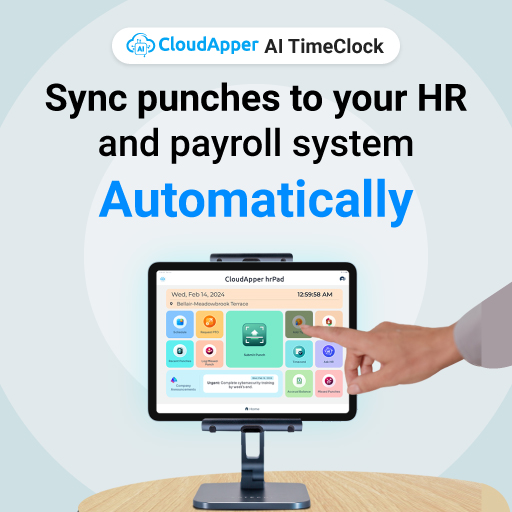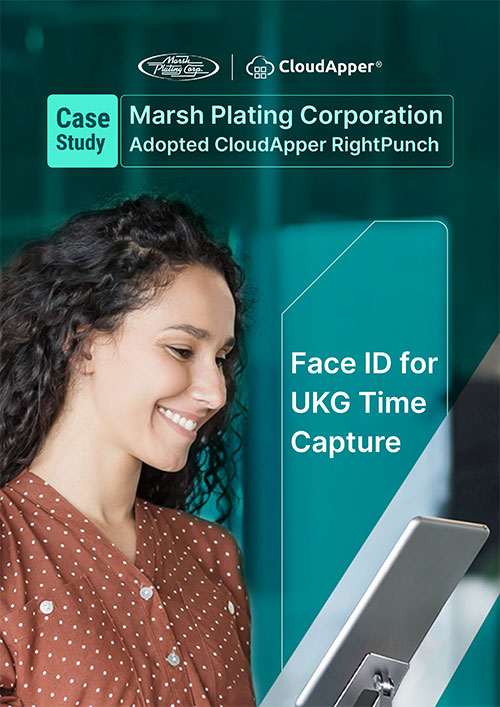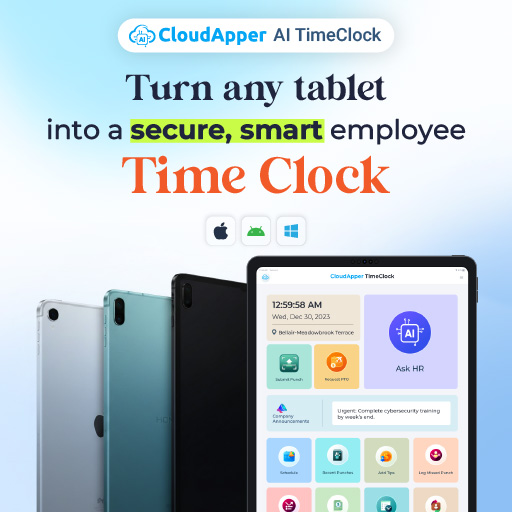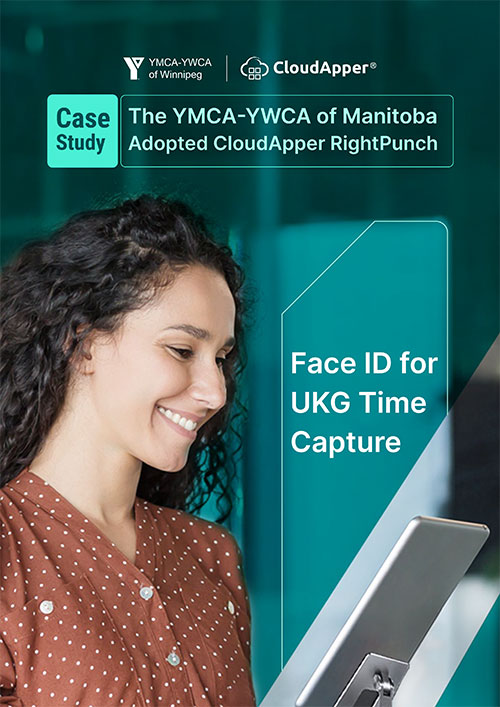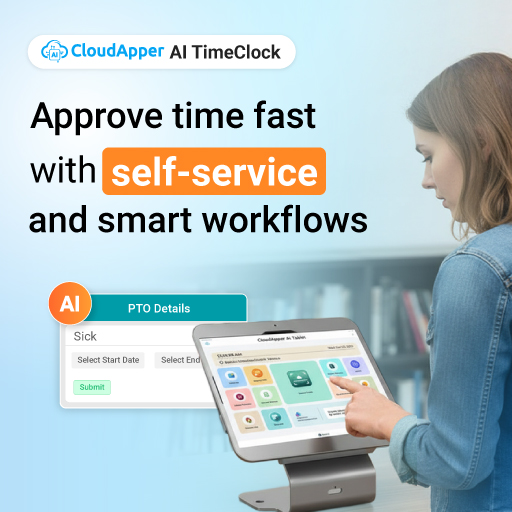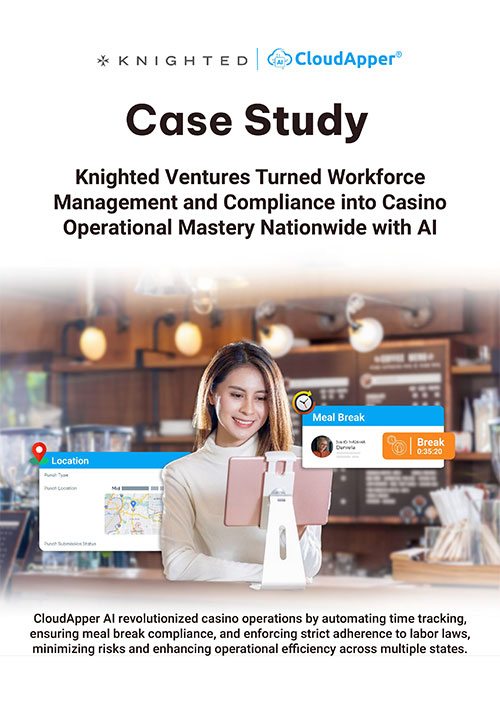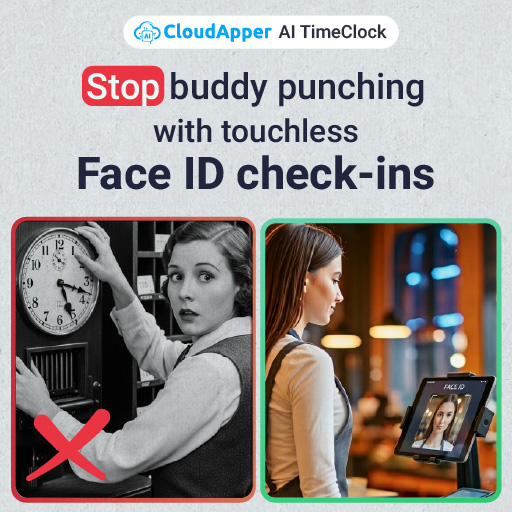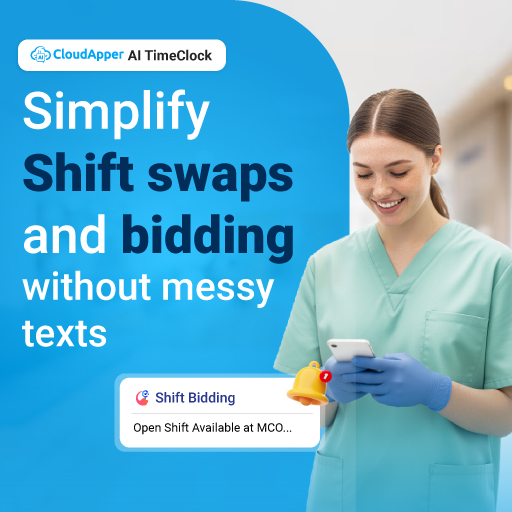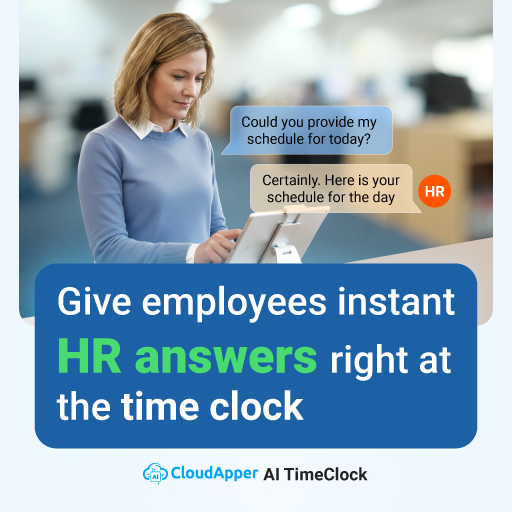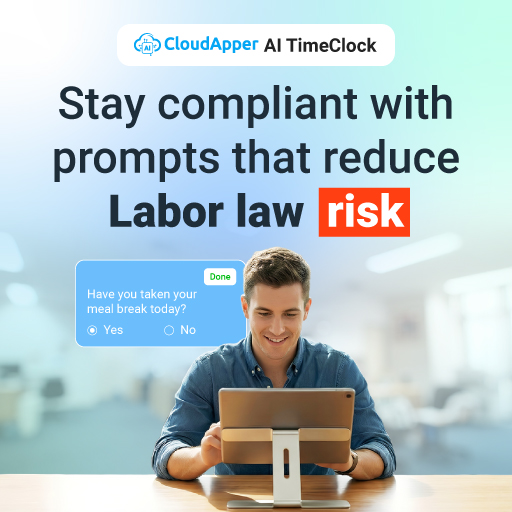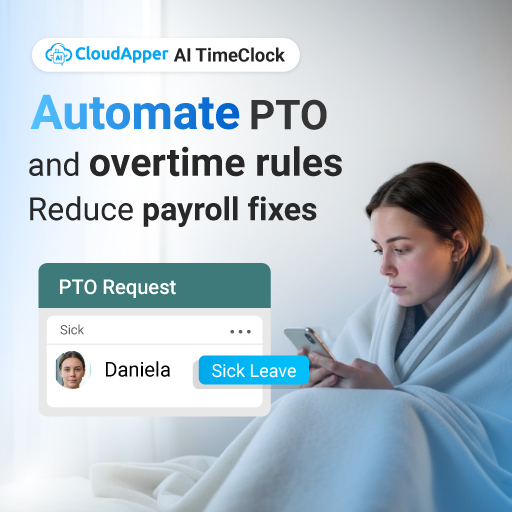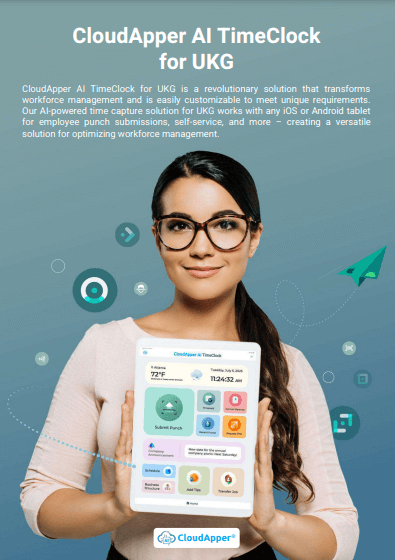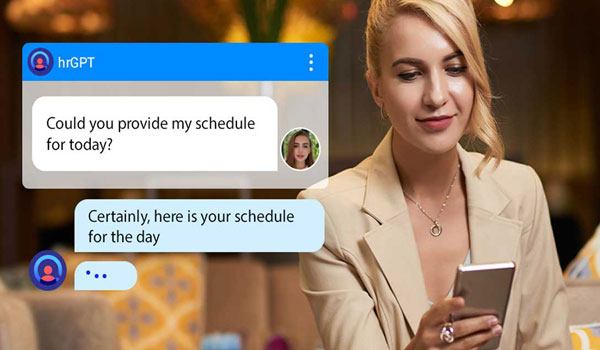UKG customers across healthcare, manufacturing, retail, and logistics face costly timekeeping errors—from shift differential miscalculations to buddy punching. Root causes include imprecise time capture and manual processes. CloudApper AI TimeClock solves these chronic problems with exact-minute tracking, AI validation, biometric authentication, and seamless UKG integration.
The Critical Importance of Accurate Timekeeping
Accurate timekeeping is the foundation of workforce management, directly impacting payroll accuracy, regulatory compliance, labor cost control, and employee trust. For organizations using UKG Workforce Central or UKG Pro, timekeeping errors can cascade into significant financial losses, legal exposure, and damaged employee relationships. Yet despite UKG’s sophisticated capabilities, customers across industries consistently face recurring timekeeping errors rooted in imprecise data capture, manual processes, complex shift differentials, and inadequate validation mechanisms.
Understanding the specific timekeeping challenges by industry—and their underlying root causes—is essential for developing effective solutions. This article examines common UKG timekeeping errors across healthcare, manufacturing, retail, logistics, and other sectors, explores why these errors persist, and reveals how CloudApper AI TimeClock eliminates these chronic problems through precise time capture, AI-powered validation, and seamless UKG integration.
Healthcare: Shift Differential Calculation Errors and Compliance Risks
The Challenge
Healthcare organizations face perhaps the most complex timekeeping environment of any industry. With 24/7 operations, overlapping shifts, multiple locations, and intricate shift differential policies, even small timekeeping errors multiply quickly across large nursing staffs.
Shift Differential Calculation Errors: The most prevalent and costly issue affecting healthcare organizations using UKG involves miscalculated shift premiums for night, weekend, and holiday shifts. Nurses working overnight shifts typically earn 10-20% premiums over base rates, while weekend differentials add another 5-15%. When UKG’s rounding policies or grace periods cause punch times to misclassify shift boundaries, these premiums are incorrectly applied or omitted entirely.
Consider a common scenario: A nurse scheduled for the 11 PM-7 AM night shift clocks in at 10:58 PM. If UKG rounds this punch to 11:00 PM, the night differential calculation begins correctly. However, if the system rounds to 10:45 PM (the previous 15-minute interval), the first 15 minutes may be calculated at the lower day-shift rate, shorting the employee their differential pay. Multiply this across hundreds of nurses working thousands of shifts monthly, and hospitals lose tens of thousands of dollars annually in incorrect shift pay—or worse, face Department of Labor violations for underpaying employees.
Break Compliance Issues: Healthcare regulations mandate specific meal and rest breaks, but the intensity of patient care means breaks are frequently interrupted or missed. When nurses return from breaks early to handle emergencies, timekeeping systems struggle to accurately capture the actual break duration. Manual corrections become necessary but are time-consuming and error-prone.
Multiple Location Tracking: Healthcare systems with multiple facilities struggle when nurses float between locations. Time must be correctly attributed to each facility for accurate labor cost allocation and budget tracking. Errors in location coding create financial reporting problems and complicate contract labor management.
Float Pool and PRN Staff Complexity: Per diem nurses, float pool staff, and agency workers have different pay rates and differential structures. UKG timekeeping errors in applying the correct rate to the correct employee classification lead to overpayments or underpayments that damage trust and morale.
The Financial and Compliance Impact
For a 500-bed hospital with 1,200 nursing staff:
- Average shift differential error rate: 2-3% of shifts
- Cost per error: $15-$30 in incorrect pay
- Monthly impact: 24,000-36,000 potential shift assignments × 2.5% error rate = 600-900 errors
- Annual cost: $180,000-$324,000 in payroll discrepancies
Beyond financial costs, shift differential errors create serious compliance risks. State nursing associations frequently file class-action lawsuits on behalf of nurses claiming systematic underpayment of shift differentials. These lawsuits can result in multi-million dollar settlements plus legal fees and reputational damage.
Manufacturing: Rounding Errors and Overtime Miscalculations
The Challenge
Manufacturing environments typically run multiple shifts with precise start and end times. However, timekeeping challenges emerge when legacy time clock configurations and rounding policies distort actual worked hours.
15-Minute Rounding Errors: Many manufacturing facilities configure their UKG time clocks to round punches to the nearest 15-minute interval—a practice intended to simplify payroll but that creates systematic distortions. When an employee clocks in at 6:53 AM for a 7:00 AM shift, the system rounds to 7:00 AM, appearing to eliminate three minutes of early arrival time. Similarly, clocking out at 3:08 PM rounds to 3:00 PM, eliminating eight minutes of work time.
While individual instances seem minor, the aggregate impact is substantial. Consider a facility with 300 production workers:
- Each worker experiences 4 clock events daily (in, break out, break in, out)
- Average rounding variance: 3-7 minutes per punch
- Daily rounding variance per employee: 12-28 minutes
- Annual variance: 60-140 hours per employee
- Facility-wide annual impact: 18,000-42,000 hours of uncompensated or overcompensated time
This systematic variance creates two serious problems: underpaying employees for actual worked time (wage and hour violation) or overpaying when rounding favors the employee (unnecessary labor costs).
Overtime Calculation Distortions: Rounding errors directly affect overtime calculations. If actual worked hours are 40.5 hours but rounding reduces recorded time to 39.75 hours, the employee loses legitimate overtime. Conversely, if rounding inflates recorded time to 40.5 hours when actual time was 39.75 hours, the employer pays unearned overtime premiums.
Missed Break Tracking: Manufacturing environments mandate specific meal breaks under federal and state labor laws. When employees skip breaks to meet production targets or take shorter breaks than required, timekeeping systems often fail to capture this accurately. Manual processes for tracking break exceptions are inconsistent and create compliance vulnerability.
Shift Differential Complexity: Manufacturing operations running second and third shifts with differential pay structures face similar challenges to healthcare. Precise shift boundary identification is critical—yet rounding and grace periods create the same misclassification problems.
The Financial and Compliance Impact
For a 300-employee manufacturing facility:
- Rounding-related payroll variance: $45,000-$120,000 annually
- Overtime miscalculation cost: Additional $30,000-$60,000 annually
- DOL audit risk: Potential back wages, penalties, and legal fees if violations discovered
- Production efficiency loss: 2-5% when accurate time data isn’t available for scheduling optimization
Retail and Service: Manual Entry Errors and Missing Punches
The Challenge
Retail and service industries face high employee turnover, varied schedules, and part-time workforce dynamics that complicate timekeeping. The fast-paced environment and employee demographics create specific error patterns.
Human Error in Manual Clock-Ins: Despite technology availability, some retail locations still rely partially on manual time entry or employees self-reporting hours worked. Manual entry introduces numerous errors:
- Transposition errors (entering 2:15 instead of 2:51)
- Memory errors (employee doesn’t remember exact clock-in time)
- Rounding estimates (employee reports “about 3:00” when actual time was 2:47)
- Intentional inflation (employees rounding in their favor)
Missed Punches: The most common UKG timekeeping error in retail is simply missing clock events. Employees rush in during busy periods and forget to clock in. They start helping customers and forget to clock back in after breaks. They leave at closing time and forget to clock out. Each missing punch requires manager intervention to investigate and correct—a time-consuming process that delays payroll processing.
For a retail chain with 2,000 part-time employees:
- Missed punch rate: 5-8% of all clock events
- Manager time per correction: 5-10 minutes
- Monthly correction burden: 4,000-6,400 missing punches requiring 333-1,067 manager hours
- Annual cost of correction time: $100,000-$320,000 in manager labor
Break Compliance Violations: Retail employees often work through required breaks during busy periods or take breaks shorter than required. UKG systems struggle to enforce break compliance when employees don’t properly clock break periods. This creates significant legal exposure in states like California with strict meal break laws.
Schedule Adherence Challenges: Retail schedules change frequently based on traffic patterns and staffing needs. When employees work different hours than scheduled, timekeeping systems must capture actual worked time while maintaining schedule integrity. Confusion between scheduled time and actual time leads to payroll errors.
Tip and Commission Tracking: Service industry workers earning tips or commissions need accurate time tracking to correctly calculate base wages versus tipped wages. UKG timekeeping errors in tracking these components create complex payroll problems and potential minimum wage compliance issues.
The Financial and Compliance Impact
For a 100-location retail chain with 2,000 employees:
- Missed punch correction costs: $100,000-$320,000 annually
- Payroll error rate from manual entries: 2-4% of timecards
- Break compliance violation risk: Potential class-action exposure in California and similar jurisdictions
- Employee turnover partially attributable to paycheck errors: 3-5% turnover increase
- Replacement cost impact: $150,000-$400,000 in additional turnover costs
Logistics and Transportation: Location Misattribution and Time Theft
The Challenge
Logistics, transportation, and field service industries face unique timekeeping challenges due to mobile workforces, multiple work locations, and project-based billing.
Time Misattributed to Wrong Job Codes or Locations: Drivers, technicians, and field workers often move between multiple customer sites, warehouses, or service locations in a single day. Each hour worked must be correctly attributed to the appropriate job code, customer account, or location for accurate:
- Customer billing
- Project cost tracking
- Labor allocation analysis
- Location-specific labor cost management
When UKG timekeeping fails to accurately capture location changes, time is misattributed. A driver’s hours get coded to Location A when they were actually servicing Location B. This creates billing errors (undercharging the correct customer while overbilling another), inaccurate project costing, and flawed operational analytics.
Buddy Punching and Time Theft: Mobile workforces present opportunities for time theft through “buddy punching”—one employee clocking in for an absent colleague. In traditional time clock environments, this fraud is difficult to detect. Employees may clock in from home, claim to be at a job site when they’re not, or inflate hours worked when supervision is limited.
The American Payroll Association estimates buddy punching costs employers 2-8% of gross payroll annually. For a logistics company with $10 million in annual labor costs, that’s $200,000-$800,000 in fraudulent wage payments.
Overtime Monitoring Gaps: Field workers may accumulate unplanned overtime that goes unnoticed until payroll processing. Lack of real-time visibility means managers can’t intervene to prevent unnecessary overtime, and cumulative overtime costs create budget overruns.
Multi-State Compliance Complexity: Transportation and logistics companies operating across multiple states must comply with varying labor laws, break requirements, and overtime rules. UKG systems must correctly apply the appropriate rules based on where work was performed—but location tracking errors cause compliance violations.
The Financial and Compliance Impact
For a 500-employee logistics and transportation company:
- Location misattribution billing errors: $80,000-$200,000 annually in revenue leakage
- Buddy punching and time theft: $200,000-$800,000 annually
- Uncontrolled overtime costs: $150,000-$400,000 annually
- Multi-state compliance violation risk: Potential penalties and back wages
- Customer billing disputes from time attribution errors: Damaged client relationships and lost revenue
Root Causes: Why UKG Timekeeping Errors Persist
Despite UKG’s sophisticated workforce management capabilities, timekeeping errors persist due to several fundamental root causes:
1. Imprecise Time Capture Technology
Traditional time clocks capture time at interval-based precision (5, 10, or 15-minute increments) rather than exact-minute or second-level precision. This interval-based approach, designed to simplify payroll in the pre-digital era, creates systematic rounding distortions that no amount of downstream processing can eliminate. When the initial data capture is imprecise, everything built on that data is compromised.
2. Manual Timesheet Entries Prone to Error
Any timekeeping process requiring manual intervention introduces human error. Whether employees manually entering time, managers correcting missing punches, or HR teams adjusting timecards for exceptions, each manual touch point risks:
- Data entry mistakes
- Memory errors
- Intentional manipulation
- Inconsistent application of policies
- Processing delays
3. Complex Shift Rules with Overlapping Premiums
Modern workplaces have intricate pay structures with multiple overlapping rules:
- Night shift differentials (10 PM – 6 AM earns +15%)
- Weekend premiums (Saturday-Sunday earns +10%)
- Holiday rates (designated holidays earn +50%)
- Overtime calculations (over 40 hours weekly earns 1.5x)
- Double-time rules (over 12 hours daily earns 2x in some states)
When a nurse works a night shift on Saturday during a holiday weekend and exceeds 40 hours, which premiums apply? In what order? How do they interact? UKG timekeeping complexity increases exponentially with multiple overlapping rules, and errors emerge when the system miscalculates which rules apply to which hours.
4. Inadequate Validation and Audit Controls
Many organizations lack real-time validation mechanisms that would catch errors immediately:
- No alerts when punch patterns seem unusual
- No automated flagging of missed punches
- No real-time overtime warnings
- No validation that employee location matches expected work site
- Insufficient audit trails documenting timecard changes
Without proactive validation, errors aren’t discovered until payroll processing—or worse, not until employees complain about paychecks or auditors identify systemic problems.
5. Systems Unable to Track Multiple Locations and States Effectively
Mobile workforces require sophisticated location tracking integrated with timekeeping. Basic time clocks can’t capture where employees are working, let alone validate that location data against schedules or job assignments. This limitation creates the location misattribution errors plaguing logistics and field service operations.
Multi-state compliance adds another layer of complexity. An employee working in California on Monday (requiring specific meal break timing) then in Nevada on Tuesday (different rules) needs location-aware timekeeping that automatically applies appropriate labor laws. Most UKG implementations struggle with this dynamic compliance requirement.
Enter CloudApper AI TimeClock: A Game-Changer in UKG Timekeeping
CloudApper AI TimeClock was designed specifically to eliminate the chronic timekeeping problems facing UKG customers across industries. Rather than accepting rounding errors, manual processes, and validation gaps as inevitable, CloudApper transforms time capture into a precise, automated, intelligent process.
Exact-Minute Tracking & AI Validation
Unlike traditional time clocks that round to 5, 10, or 15-minute intervals, CloudApper AI TimeClock captures time at exact-minute precision. When an employee clocks in at 6:53:47 AM, that’s exactly what’s recorded—not an approximation or rounded value. This precision eliminates the systematic distortions inherent in interval-based rounding.
But precision alone isn’t enough. CloudApper enhances accuracy with AI-powered validation that analyzes time entries in real-time:
- Pattern Recognition: AI identifies unusual punch patterns (employee who normally arrives at 7 AM suddenly clocking in at 5 AM)
- Exception Flagging: Automatically highlights missed punches, early departures, or late arrivals for manager review
- Schedule Comparison: Compares actual punches against scheduled shifts and flags significant deviations
- Break Validation: Verifies that required breaks were taken at appropriate times and durations
- Overtime Alerts: Warns managers in real-time when employees approach daily or weekly overtime thresholds
This AI validation catches errors at the point of capture rather than discovering them days later during payroll processing—transforming reactive error correction into proactive error prevention.
Seamless UKG Integration
CloudApper AI TimeClock integrates deeply with both UKG Workforce Central and UKG Pro, ensuring precise time data flows seamlessly into your existing UKG environment:
- Punch data syncs in real-time, not batch overnight
- All UKG pay rules, shift differentials, and overtime policies are honored
- Employee data automatically synchronizes (new hires, terminations, position changes)
- Schedule information flows bidirectionally
- Timecard exceptions route through UKG approval workflows
This tight integration means you gain CloudApper’s advanced capabilities without disrupting your established UKG processes or requiring employees to learn a completely new system.
Biometric Authentication & Geo-Fencing
CloudApper AI TimeClock eliminates buddy punching and location-based time theft through two powerful security features:
Facial Recognition Biometric Authentication: Each punch requires facial recognition verification, ensuring the employee clocking in is actually the person scheduled to work. This touchless, hygienic authentication method:
- Prevents one employee from clocking in for absent colleagues
- Creates photographic documentation of each clock event
- Processes verification in under 2 seconds
- Works reliably in various lighting conditions
- Requires no special hardware—runs on standard tablets
Geo-Fencing with Location Validation: CloudApper’s GPS-based geo-fencing ensures employees can only clock in from approved locations:
- Define precise geographical boundaries for each work site
- Employees attempting to clock in from unauthorized locations are blocked
- Location data is automatically captured with each punch
- Managers receive alerts when employees clock in from unexpected locations
- Multi-site organizations assign employees to specific locations with location-based punch validation
For logistics companies, geo-fencing solves the location misattribution problem. When a driver arrives at Customer Site B, the system automatically codes their time to the correct location for accurate billing and labor tracking.
Customizable Rule Enforcement
Every organization has unique pay policies, shift differentials, and compliance requirements. CloudApper AI TimeClock accommodates complex rules through highly customizable configuration:
Shift Differential Automation: Define precise shift differential rules based on:
- Specific start/end times (10 PM – 6 AM = night differential)
- Day of week (Saturday-Sunday = weekend premium)
- Holidays (New Year’s Day = holiday rate)
- Multiple overlapping conditions (night shift + weekend = both premiums)
CloudApper automatically calculates and applies correct differentials based on actual punch times—eliminating the shift boundary misclassification errors plaguing healthcare organizations.
Grace Period Configuration: Set reasonable grace periods that match your business needs without creating systematic rounding distortions. CloudApper allows different grace periods for:
- Clock-in (5-minute early grace, 7-minute late grace)
- Clock-out (different rules from clock-in if needed)
- Break start and end times
- Different employee groups (managers vs. hourly workers)
Overtime Rule Customization: Configure complex overtime rules including:
- Daily overtime (over 8 hours in a day)
- Weekly overtime (over 40 hours in a week)
- Consecutive day rules (7th consecutive day worked)
- Double-time triggers (over 12 hours in a day in California)
- State-specific regulations automatically applied based on work location
Break Enforcement: Mandate specific break timing and duration:
- Required 30-minute meal break within first 5 hours of shift
- Two 15-minute rest breaks for 8-hour shifts
- Automatic prompts reminding employees to take required breaks
- Alerts to managers when employees miss required breaks
Audit-Ready Compliance
CloudApper AI TimeClock creates comprehensive audit trails and compliance documentation:
Real-Time Manager Alerts:
- Employees approaching overtime thresholds
- Missing punches requiring correction
- Break compliance violations
- Unusual punch patterns suggesting time theft
- Schedule adherence exceptions
Comprehensive Reporting:
- Detailed punch history with timestamps and location data
- Timecard edit logs showing who made changes and when
- Break compliance reports for labor law documentation
- Overtime analysis by employee, department, and time period
- Exception reports highlighting issues requiring attention
Reduced Manual Override Dependency: By capturing accurate data at the source and validating it in real-time, CloudApper dramatically reduces the need for manager overrides and manual timecard corrections—the primary sources of error in traditional systems. Employees punch accurately, the system validates correctly, and payroll processing happens with minimal intervention.
Measurable Results: CloudApper Impact Across Industries
Organizations implementing CloudApper AI TimeClock with their UKG systems achieve measurable improvements:
Healthcare:
- 85-95% reduction in shift differential calculation errors
- $180,000-$324,000 annual payroll cost savings (500-bed hospital)
- Break compliance improvements from 78% to 98%
Manufacturing:
- Elimination of rounding-based payroll variance ($45,000-$120,000 annually for 300 employees)
- Overtime miscalculation reduction of 90%+
- Labor cost analysis accuracy improvement supporting scheduling optimization
Retail:
- Missed punch rates drop from 5-8% to under 1%
- Manager time spent on timecard corrections reduced by 80%
- Annual savings of $80,000-$256,000 in manager labor (2,000-employee chain)
Logistics:
- Location misattribution errors eliminated through geo-fencing
- Buddy punching and time theft reduced by 95%+ with facial recognition
- Customer billing accuracy improved, recovering $80,000-$200,000 in lost revenue
Conclusion: Precision and Intelligence Transform UKG Timekeeping
Industries using UKG Workforce Central and UKG Pro face varied but fundamentally related timekeeping challenges. Healthcare struggles with shift differential accuracy. Manufacturing grapples with rounding errors. Retail battles missing punches. Logistics fights location misattribution and time theft.
The root causes stem from imprecise time capture technology, manual processes prone to error, complex overlapping pay rules, inadequate validation mechanisms, and systems unable to handle multi-location and multi-state complexity.
CloudApper AI TimeClock solves these persistent problems through:
- Exact-minute time capture eliminating rounding distortions
- AI-powered validation catching errors at the source
- Biometric authentication preventing time theft
- Geo-fencing ensuring location accuracy
- Customizable rule enforcement handling complex pay policies
- Seamless UKG integration maintaining system consistency
- Real-time alerts supporting proactive management
- Comprehensive audit trails ensuring compliance readiness
The result: dramatically lower payroll errors, improved regulatory compliance, reduced labor costs, enhanced operational visibility, and restored employee trust—all while leveraging your existing UKG investment.
Organizations serious about eliminating timekeeping errors don’t accept approximation and manual correction as inevitable. They implement precise, intelligent, automated time capture that gets it right the first time.
Explore how CloudApper AI TimeClock transforms timekeeping accuracy and compliance for UKG customers across industries. Discover the difference exact-minute precision and AI validation make in your payroll accuracy, compliance posture, and employee satisfaction.
Learn more about CloudApper AI TimeClock for UKG


